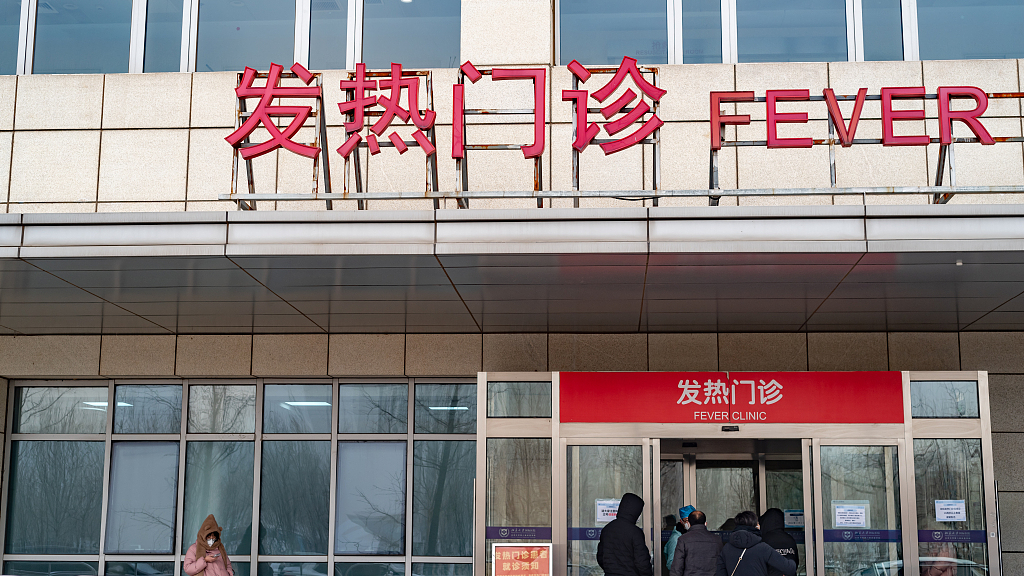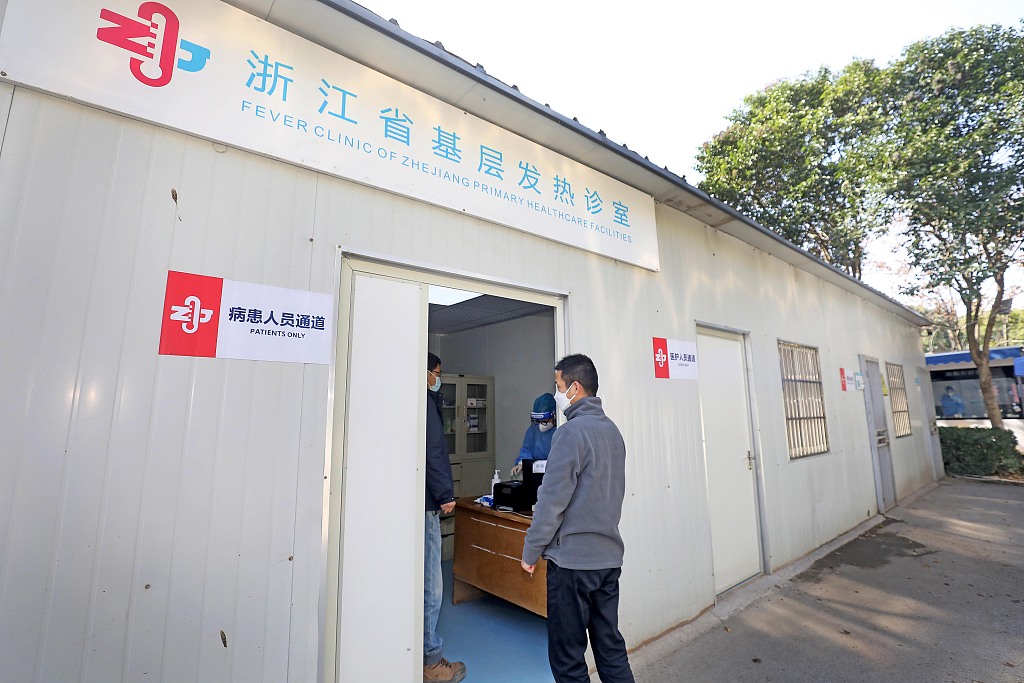
The fever clinic at Peking University International Hospital in Beijing, December 12, 2022. /CFP
The fever clinic at Peking University International Hospital in Beijing, December 12, 2022. /CFP
China is experiencing a surge in demand for fever treatment at hospitals, yet it's seeking to optimize medical services and the allocation of medical resources from multiple approaches.
First, the country will continue to expand the supply of medical resources and medical services, a health official said at a press conference on Wednesday afternoon.
As of noon on December 14, a total of 14,000 fever clinics were set up nationwide at second level or higher-level hospitals on top of 33,000 fever clinics and rooms at qualified primary medical institutions, according to Jiao Yahui, director general of the Bureau of Medical Administration under the National Health Commission.
That together triples the amount counted in early 2020 when the more lethal SARS-CoV-2 virus swept the country, according to the number released on February 4, 2020.

A newly established fever clinic at a county-level healthcare facility in Huzhou City of east China's Zhejiang Province, December 13, 2022. /CFP
A newly established fever clinic at a county-level healthcare facility in Huzhou City of east China's Zhejiang Province, December 13, 2022. /CFP
Smart allocation of medical resources
Secondly, the country urges for stratified treatment for patients with different conditions and constructs a reasonable order for hospital visits.
It also encourages people to seek consultation or prescription via online diagnosis.
Peking University Third Hospital recently rolled out a new feature on its mobile application that allows people with a fever to consult with doctors through virtual appointments. Drugs and medications prescribed online can be delivered to the door with fees covered by medical insurance.
Many hospitals have introduced their own mobile applications or mini program enclosed in WeChat that are enabled with second-time consultation for many disciplines and online registration for a particular time period.
A hospital visit at Beijing Tiantan Hospital simply goes like confirming in-person registration at a self-service machine and then waiting for the doctor, which doesn't take long.
"I arrived at the hospital according to my appointment time period and I basically finished consultation within that time, which lowered the chance of getting cross-infected," a patient at Beijing Tiantan Hospital told China Media Group.
Step up for medication supply
With the increased COVID-19 infections and the fact that more people choose to receive treatment at home, some types of drugs are in short supply, according to an official with China's Ministry of Industry and Information Technology (MIIT).
Zhou Jian, the deputy general of the consumer product industry department at MIIT, said at the press conference that China's production capacity for COVID-19 treatment can fulfill patients' needs, and that the ministry would exert all efforts to ensure stable production and gradual expansion.
It has put pharmaceutical manufacturers for COVID-19 medicines listed in the latest medication guidelines on a whitelist and vows to clear other logistic issues such as water and electricity consumption, procurement, and delivery.
The ministry also supports enterprises to work overtime and initiate full production capacity as soon as possible.